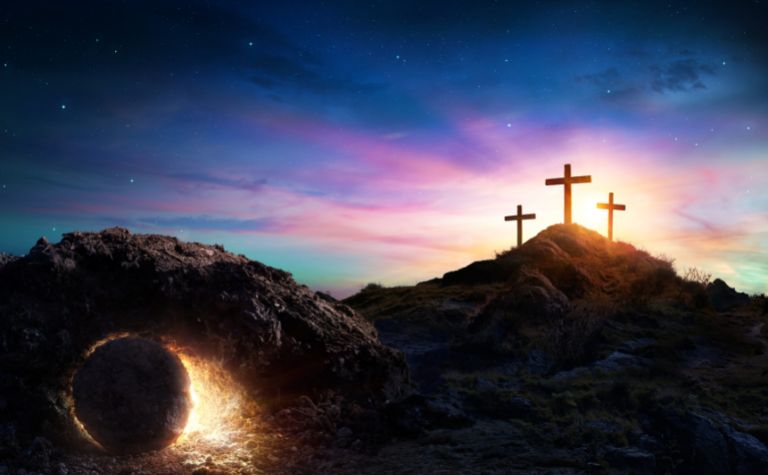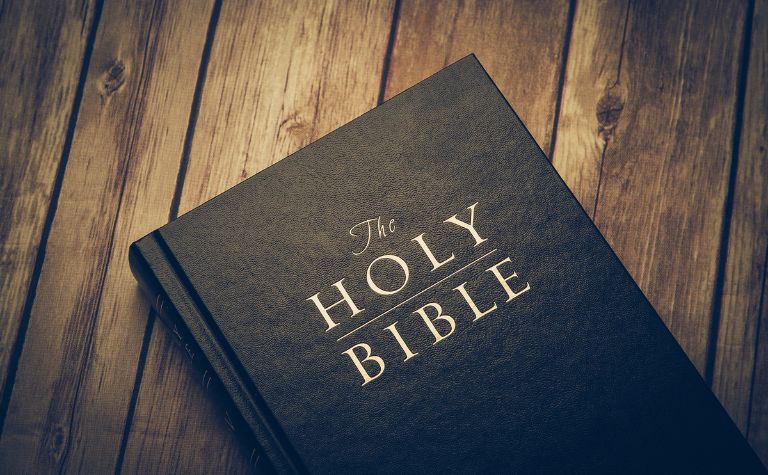Every year people notice that the Jewish Passover festival and Christianity’s celebration of Jesus’ resurrection at Easter occur close together on the calendar. In some years, the commemorations even overlap. Many people who notice this understand that the proximity probably isn’t coincidental, but they don’t fully understand how Passover and Easter are related.
Passover in Judaism and Easter in Christianity are expressly connected. Jesus was crucified in Jerusalem during Passover when many Jews gathered in the city for the celebration. The New Testament presents Jesus as the ultimate sacrificial lamb who died on the cross to atone for people’s sin.
How did Passover get its name? Why does it occur in the Spring every year? What does the word “Easter” mean? Why does it happen in the Spring, too? How is Jesus like a Passover lamb? Keep reading to learn the answers to these questions and others.
Also, many traditions surround Good Friday and Easter. Learn what Easter Monday is and why it’s important to some Christians.

What is Passover? Why is it in the Spring?
One of the most significant eras in Israelite history is when God rescued their Hebrew ancestors from slavery in Egypt. At the beginning of that 400-year period, God’s people had favor with the Egyptians. However, when the Israelites grew in number, the Pharaoh enslaved them as laborers (Exod. 1:8-12).
What is the festival called Passover?
Through the ministry of Moses, God sent plagues upon Egypt to free his people from Pharaoh’s grip. In the 10th and final plague, God killed all the firstborn Egyptian males (Exod. 12:29-32). Earlier, he told the Israelites to smear lamb’s blood on the doorposts of their homes, and when his “destroyer” (NIV, ESV, NASB, KJV) or “angel of death” (NLT) executed judgment, he would skip them, sparing their sons.
God soon rescued his people through the ministry of Moses, enabling them to leave Egypt and return home (Exod., Ch. 12-13). This event is known as the exodus, and it significantly shaped the Israelite’s identity for centuries, even millenniums. It’s also the title of the second book of the Hebrews Bible or Christian Old Testament, which records the story. The annual Jewish Passover festival celebrates this event.
| Name | God “passed over” the Israelites’ bloody doorposts (Exod. 12:1-32) |
| Basis | Exod. 12:11-14; Lev. 23:5; Deut. 5:12-15 |
| Date | 14th day of the 1st month, Aviv/Nisan (Lev. 23:5) |
| Season | Spring (March or April) |
| Purpose | Recalls the Exodus from Egypt |
| Also called | The Feast of Unleavened Bread (Exod. 23:15) |
How is the date for Passover determined?
God told the Israelites to celebrate Passover on the 14th day of the first month of the Jewish year (Exod. 12:1-10). The first month of the Jewish calendar is Nisan, which is in the Spring. Therefore, the annual date that Jewish people celebrate Passover is Nisan 14 at twilight (cf. Lev. 23:5). On the Gregorian calendar, Nisan 14 usually occurs in April (see dates below). So why does Easter occur at this time, too?
Also, Judaism and Christianity have several beliefs and values in common. Learn if Jewish people celebrate Easter and why or why not.

Why is Easter in the Spring Every Year?
The Council of Nicaea decided how to determine the date of Easter every year, which would be on the first Sunday after the first paschal full moon after March 21. March 21 is the fixed date of the Spring Equinox in the northern hemisphere on the Gregorian calendar. “Paschal” comes from the Latin word for Passover. “Full moon” in this context doesn’t refer to a literal full moon but to 14 Nisan.
How did the date of Passover play into the council’s decision?
First, the council based its decision on Jesus being crucified during the annual Passover festival (e.g., Matt. 26:17-26; John 19:14) as God’s sacrificial lamb (cf. John 1:29). Second, the council used the formula for determining the Jewish date of Passover for when to celebrate Easter, which committed them to a lunar calendar, not a solar one.
Unlike a solar calendar, such as the Gregorian calendar used in the West today, a lunar one is based on the moon’s phases. As a result, lunar months vary in length, and lunar years are shorter than solar years. One outcome of the lunar calendar is that Jewish holidays have different dates yearly.
| 14 Nisan | Easter Sunday |
|---|---|
| Wednesday, April 5, 2023 | Sunday, April 9, 2023 |
| Monday, April 22, 2024 | Sunday, March 31, 2024 |
| Saturday, April 12, 2025 | Sunday, April 20, 2025 |
| Wednesday, April 1, 2026 | Sunday, April 5, 2026 |
| Wednesday, April 21, 2027 | Sunday, March 28, 2027 |
| Friday, April 14, 2028 | Sunday, April 16, 2028 |
| March 30, 2029 | Sunday, April 1, 2029 |
| Wednesday, April 17, 2030 | Sunday, April 21, 2030 |
Also, Christians have different names and terms for the traditions that occur during the Easter season. Discover why some prefer the phrase Resurrection Sunday and what they mean by it.

How is Jesus like a Passover Lamb?
The Gospel writers, especially John, emphasize the relationship between the Jewish Passover and Jesus’ death on the cross. After Jesus’ arrest and amid his trials in front of Jewish and Roman authorities, he writes, “Now it was the day of Preparation of the Passover. It was about the sixth hour. [Pilate] said to the Jews, ‘Behold your King!'” (John 19:14, ESV, emphasis added).
The slaughter of God’s lamb
The “day of preparation” refers to Friday. Jews prepared for the Sabbath on Friday, which occurred on Saturday. Then, after the chief priests demanded Jesus’ death, John writes, “So [Pilate] delivered him over to them to be crucified” (John 19:16). Thus, the lamb of God was led to the slaughter (cf. John 1:29).
Centuries earlier, the prophet Isaiah prophesied of the long-awaited Messiah, “He was oppressed, and he was afflicted, yet he opened not his mouth; like a lamb that is led to the slaughter, and like a sheep that before its shearers is silent, so he opened not his mouth” (Isa. 53:7, emphasis added; cf. Matt. 27:12).
| Friday | Timeline |
|---|---|
| Friday morning | The Sanhedrin meets |
| Jesus appears before Pilate | |
| Jesus appears before Herod | |
| Jesus appears before Pilate again | |
| Friday midday | Jesus is crucified |
| Friday midafternoon | Jesus dies |
| Friday near sundown | Jesus is buried |
John helps his readers understand that Jesus is God’s Passover lamb, starting in the first chapter of his Gospel. “The next day [John the Baptist] saw Jesus coming toward him, and said, ‘Behold, the Lamb of God, who takes away the sin of the world!’ (John 1:29)
Like the blood of lambs led to the salvation of enslaved Israelites, the blood of Jesus led to the salvation of sinners enslaved to sin (1 John 1:9).
Paul builds on this New Testament theme in verses like 1 Corinthians 5:7. “Cleanse out the old leaven that you may be a new lump, as you really are unleavened. For Christ, our Passover lamb, has been sacrificed” (emphasis added).
Easter and Resurrection Sunday
The term “Easter” is controversial to some because of its pagan origins. Some historians believe that English Christians in the Middle Ages intentionally hijacked the term to replace the pagan belief with a true one. Still, many churches and Christians prefer the phrase “Resurrection Sunday.”
| Name | “Easter” is likely from the old English word “Eostere,” i.e., a Spring goddess |
| Also called | Resurrection Sunday |
| Basis | Matt. 28:1-10; Mk. 16:1-8; Lk. 24:1-12; Jn. 20:1-10 |
| Date | The 1st Sunday after the first paschal full moon after March 21 |
| Season | Spring (March or April) |
| Purpose | Recalls the resurrection of Jesus Christ |
The New Testament inseparably links the Passover and Resurrection because the Jewish practice of slaughtering unblemished lambs every year for centuries foreshadowed what the Messiah would accomplish with his dead. Christians believe the long-awaited Messiah, foretold in ancient Jewish texts, has come, and his name is Jesus of Nazareth, the lamb of God who takes away the sins of the world (John 1:29).
Also, the Gospels in the New Testament give readers the full narrative of Jesus’ resurrection. Learn the Easter Story from beginning to end and why it’s important.
Related Questions
Easter is one of the most important dates on the Christian calendar. It's important because it's the annual day that believers gather in churches to celebrate the resurrection of Jesus Christ from...
The resurrection of Jesus Christ, along with his crucifixion, is the most important event in Christianity. Without it, the faith that Jesus founded would be groundless. As the Apostle Paul taught,...
